Literary Ladies Guide has always included journalists of the past. After all, journalists are writers, every bit as much as novelists, poets, etc. They’re storytellers who tell truth to power, go to dangerous places, and urge people to care about issues.
Women have long fought for the right to report, and even today, the playing field isn’t level in many areas of journalism at home and abroad. In this issue, we’ll pay tribute to five journalists whose careers were in full force in mid-twentieth century America. They came to be known as the “Ladies of the Black Press.”
Following is an introduction to these inspiring women — Alice Dunnigan, Ethel Payne, Daisy Bates, Evelyn Cunningham, and Marvel Jackson Cooke. They worked in various capacities of journalism — reporting, editing, broadcasting, and publishing.
These journalists of the mid-twentieth century were preceded by two powerful trailblazers — Mary Ann Shadd Cary and Ida B. Wells-Barnett.
Mary Ann Shadd Cary’s Provincial Freeman was published before the Civil War to oppose slavery. Ida B. Wells’ Free Speech and Headlight was one of many Black newspapers popping up around the country in the late 1800s and early 1900s.
Both of these papers reported on discrimination and lynching, topics that other newspapers rarely touched. In addition to these social justice issues, they also presented a more complete portrait of Black America, reporting on arts, culture, and entertainment. Cary and Wells had powerful shoulders to stand on for female journalists of all backgrounds to stand on.
Alice Dunnigan defined the importance of the Black press:
“While the role of the Black press, like other newspapers, is that of objectively reporting the news as it happens, it has had another function equally important — that of fighting oppression. Without Black reporters constantly on the national scene to report the fight for civil rights, equality, and justice … the deeds, efforts, and struggles would forever be lost to history.”
Alice Allison Dunnigan (1906 – 1983) cherished a childhood dreamed of traveling the world as a Black girl from the red clay farmland of rural Kentucky.
Alice taught for many years in Kentucky’s segregated schools, but never forgot her ambition of becoming a journalist. To keep up with writing, she submitted articles to local papers.
Her break finally came when she was hired as Washington correspondent for the Chicago Defender. As a reporter for one of America’s great Black newspapers, she broke down many barriers.
She was the first Black woman:
to gain press credentials to the White House
to travel with a president (Truman) on a campaign
to get press access to the House and Senate galleries, Department of State, and the Supreme Court
As a white house correspondent, Dunningan became known for asking tough questions. President Eisenhower stopped calling on her at press briefings because he wasn’t prepared to answer them. But President Kennedy was so impressed with her that appointed her as an educational consultant.
In this third phase of her career, Alice Dunningan combined her passions for journalism and education. And in the end, her girlhood dream of traveling the world as a reporter had come true.
Daisy Bates (1914 – 1999), born Daisy Lee Gatson in Huttig, Kansas, endured a traumatic childhood. Her mother was murdered by three white men, and later, she was abandoned by her father. Raised by family friends, she learned to navigate life on her own terms.
In the early 1940s, she and her husband Christopher Bates started a weekly Black newspaper, the Arkansas State Press. At the same time, Daisy Bates became deeply involved in the civil rights movement, becoming the president of the Arkansas chapter of the NAACP in the early 1950s.
In 1954, the Supreme Court case Brown v Board of Education ruled that school segregation was unconstitutional. But the decades-long struggle was far from over. As a journalist, newspaper publisher, and activist, Bates played a part in seeing that fight through.
In 1957, she helped a group of Black students, known as the Little Rock Nine, attend an all-white high school. Daisy Bates has been honored for her role in the battle for school integration as well as her many contributions to the Black press.
Ethel Payne (1911 – 1991) came from a working-class Chicago family that could afford to send only one of their children to college. Unfortunately, she wasn’t the one.
Instead, she set out on her own agenda, which took her from Washington, D.C. during the World War II years to post-war Japan. Her experiences in both places shaped her as a journalist and activist.
In some ways, Payne’s journey was similar to Alice Dunnigan’s. Like Dunnigan, she was a correspondent for the Chicago Defender and worked as a White House correspondent. And simillarly, Ethel made president Eisenhower angry with her questions about civil rights.
Payne was often called “The First Lady of the Black press” for her stellar career as a civil rights journalist. But the best was yet to come when CBS hired her in 1972, making her the first female African American political commentator on a national television network. She said:
“I’ve been an eyewitness to so many profound things and so many changes … I’ve had a box seat on history, and that’s a rare thing.”
More on Ethel Payne:
Evelyn Cunningham (1916 – 2010) and her parents moved from North Carolina to New York City when she was a young girl. While still a student at Long Island University in 1940, she was hired by the Pittsburgh Courier, the most widely read Black newspaper in the country, to work in their Harlem office.
Cunningham became known as “the lynching editor” for her tireless reporting on Southern mob violence. She interviewed civil rights leaders like Dr. Martin Luther King, Jr. and Malcolm X, and wasn’t afraid to call out bigoted politicians.
She continued to work at the Courier until 1962, when she left to host her own radio show on WLIB, a Black radio station in New York City.
Evelyn Cunningham embarked on a “third act” in her career. She worked as a special assistant to Nelson Rockefeller when he was governor of New York State, and followed him to Washington, D.C. when he became Vice President.
She worked on government task forces on women’s rights and was even a co-founder of one, the New York Coalition of One Hundred Black Women, dedicated to improving the lives of Black women and their families.
Marvel Jackson Cooke (1903–2000): In addition to making her mark in journalism, Cooke made significant contributions to labor and civil rights movements. She started her career as assistant to W. E. B. DuBois at the NAACP’s The Crisis magazine in the 1920s, making the acquaintance of the luminaries of the Harlem Renaissance era.
In the 1930s, Cooke worked for the New York Amsterdam News, becoming the first woman reporter in the newspaper’s 40-year history. In the mid-1940s, she wrote for Adam Clayton Powell’s publication, the People’s Voice.
In 1950, she was hired by the Daily Compass, becoming the first African American woman reporter for a mainstream white-owned newspaper (she was also the only woman on staff at the time). Cooke was also a labor activist and started the New York City chapter of the Newspaper Guild, the labor union that protected the rights of newspaper journalists.
Cooke was in the thick of the social protest movement of the 1960s, active in the Angela Davis Defense Committee, among other causes. She died in 2000, and having lived to the age of 97, she was able to experience an incredibly varied career in journalism.
You may also enjoy ...
My Etsy shop is going on hiatus soon
I don’t want media mail packages to get caught up in the holiday rush, so I’m putting the physical books on hiatus first week of November, latest. I just added Vegan Holiday Kitchen (which VegNews flatteringly put on its list of 100 best vegan cookbooks of all time) for a limited time, due to limited supply.
These books are lasting gifts for your favorite vegans, vegetarians, (or in the case of Secret Recipes for the Modern Wife, your favorite newlyweds, happily marrieds, unhappily marrieds, decoupling couples …), or yourself. Link to my Etsy Shop.



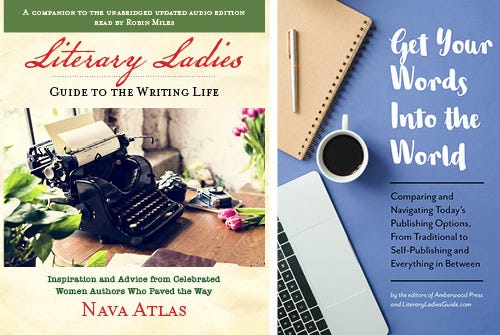
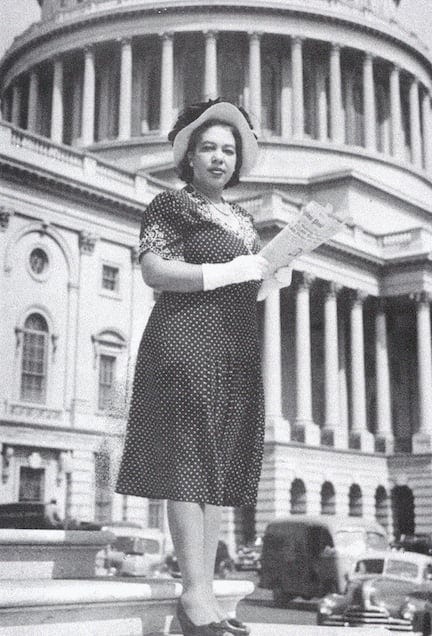
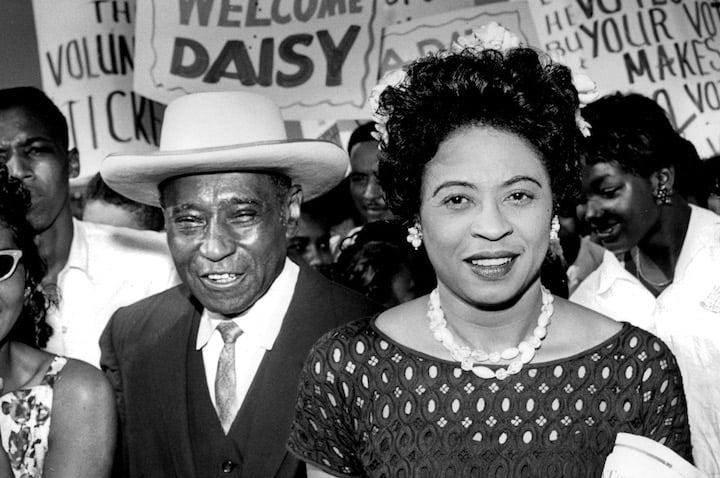
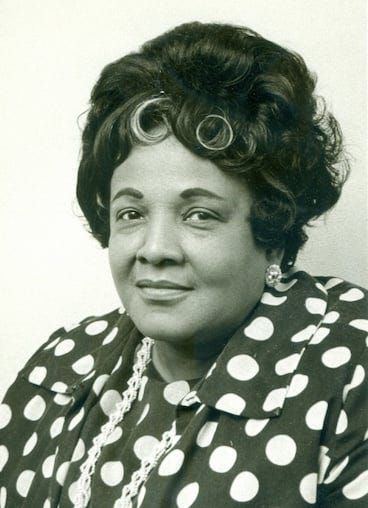
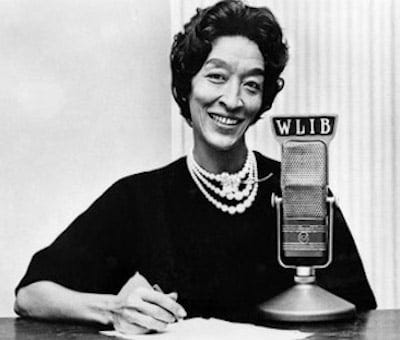
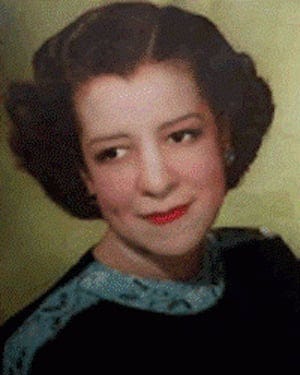

Wow! Such stunning women. Thanks for bringing them to modern consciousness. I only knew of Daisy Bates. If you happen to be aware of biographical fiction that has been written about any of these women, please let me know. I'd love to feature them in my blog.
This is ver nice, thank you!